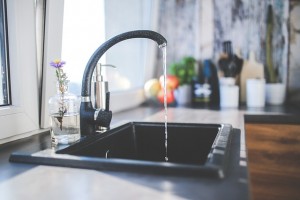Fall Allergies: How To Have the Best Breathing Air as Seasons Change
You would think that after summer’s heat has passed, the allergy season would pass as well. But for those who suffer from fall allergies, the symptoms are just beginning to appear. From fall-blooming plants to mold and mildew making another visit during the cool, damp days, allergens can seem to lurk around every corner. Let’s take a look at how to improve your indoor air quality when the seasons change so your home can give you relief from the allergy-laden outdoors and remain a safe refuge from the perils of the great outdoors.
Home 101: Breathing in the Best Air Quality at Home
Your family spends more time in your home than anywhere else. Isn’t it important that they breathe the cleanest air possible? These tips will help ensure your family avoids the many health issues related to poor indoor air quality.
Long-term Benefits of Improving Your Indoor Air Quality
With allergy season just around the corner, making sure you have good indoor air quality is surely a prime concern for many households, especially if you suffer from seasonal allergies or live with someone who does. There are several advantages in taking the extra steps to maintain an ideal indoor environment. Below are some of these reasons.
Improve Your Air Quality with These Minor Changes
It should go without saying that proper and regular HVAC maintenance is an excellent way to make sure you and your family enjoy quality indoor air. However, there are other easy and practical steps you can take to further enhance the quality of the air that you breath in your home. Below are a few ways we would like to highlight.
Dirty Air Filter: 3 Problems It Can Cause
Although the air filter may seem like a minor part of your home’s HVAC system, its job is essential to keeping your family healthy, keeping your home clean and comfortable and prolonging the life of your HVAC system. Changing a clogged or dirty air filter may be inconvenient and messy, but by doing so in a timely manner, you can help prevent the following problems:
Reduced System Airflow
A dirty air filter will reduce the airflow through the forced-air cooling or heating system, which not only decreases your comfort level, but forces the HVAC system to run longer and work harder to move the air. This can prematurely wear out sensitive system components including compressor motors, blower motors, fan motors, pulley bearings and belts. Air conditioners may begin to freeze up if the reduced airflow slows the heat absorption in the evaporator coil, or furnaces may stop heating when the reduced airflow in the heat exchanger causes that component to overheat, shutting off the burners. Additionally, because the system is running much less efficiently, your utility bills will increase, sometimes dramatically.
Higher Indoor Air Pollution
With a dirty air filter, airborne particles such as dust, pollen, pet dander and other harmful pollutants will remain in the air, continually circulating throughout the house. This can cause breathing difficulties for anyone living in the home, but the situation is much worse for those who suffer from allergies, asthma, emphysema or other respiratory illnesses. Checking the air filter monthly, and cleaning or replacing it when necessary, can help keep your indoor air quality high and your family safe.
Accumulation of Excess Dust
Without being removed by the air filter, dust will begin to accumulate in more places around your home, increasing your cleaning workload. In addition, the dust will begin to gather in the air ducts, costing you extra money to have them cleaned.
To learn more about the effects of a dirty air filter on your health and your HVAC system, consult our experts at Cox Air Conditioning & Heating. We have been serving Clearwater, Tampa, St. Petersburg and the surrounding areas since 1958.
Image Provided by Shutterstock.com
Spring Is Allergy Season: Improve Your IAQ
One of the best gifts you can give yourself if you suffer from allergies, seasonal or otherwise, is to improve indoor air quality St. Petersburg area home and consider adding an air cleaner to your home comfort system. You can more easily avoid avoid pollen and outdoor allergens in your controlled indoor environment, but still face allergens like dust mites, animal dander and insects which often trigger allergy symptoms. Improve your IAQ to reduce allergy and asthma symptoms. Here are some strategies for a sneeze-less spring allergy season:
Reduce Exposure to Allergy Season Triggers
- Close windows and doors at night and early morning when pollen counts are highest, and set your air conditioner on recirculate.
- Avoiding pets entirely cuts your risk of allergy flares, but the next best thing is keeping a short-haired pet and shampooing him/her often. Keep your pet out of the bedroom if possible.
- Avoid carpets and overstuffed furniture. Choose hardwood floors and sleeker furnishings when possible.
- Keep household surfaces clean and uncluttered.
- Encase mattresses and pillows in zippered, allergy-reducing covers.
- Wash bedding often in hot water.
- Get annual HVAC maintenance to help keep heating and cooling equipment clean and running properly.
- Clean floors/furnishings often with a HEPA filtered vacuum cleaner and/or special double filter bags.
- Wear a dust mask while cleaning your house.
- Use a damp or specially treated cloth when dusting.
- Leave the area for a few hours after housecleaning.
- Limit houseplants.
- Fix household leaks promptly and eliminate other causes of dampness.
- Thoroughly clean moldy surfaces.
- Control ants and cockroaches. Securely cover your garbage can. Opt for boric acid traps and poison baits, rather than chemical agents that can worsen your allergies and asthma flare-ups.
Keep Indoor Air Clean
- Use air conditioning with high-efficiency air filters compatible with your system. Change the air filter often.
- Some homes may benefit from duct cleaning.
- Keep indoor air dry and cleaner by using a whole-house dehumidifier and air cleaner, integrated with your central A/C. You’ll have cleaner air and inhibit dust mite and mold growth.
To learn more about how improve your IAQ to survive allergy season, contact Cox Air Conditioning & Heating today!
Image Provided by Shutterstock.com













Recent Comments